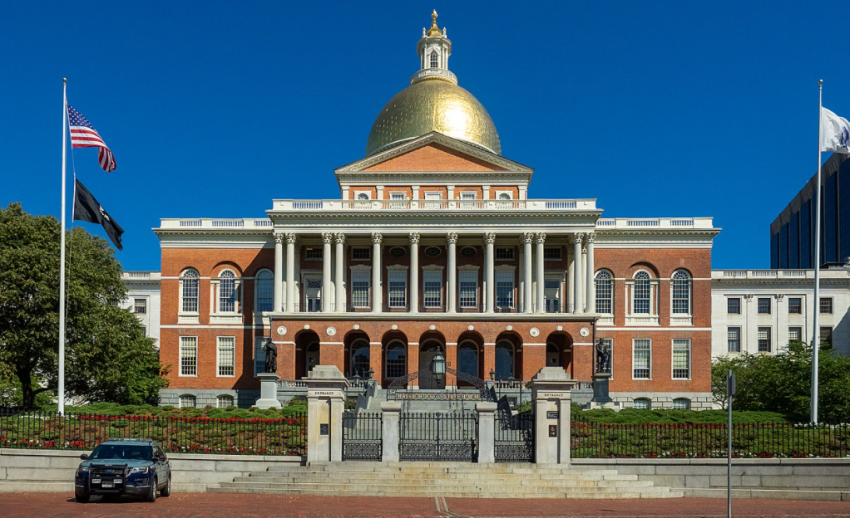Massachusetts lawmakers seek to legalize abortion up to birth by adding it to state budget

As companion bills aimed at allowing abortion up until the moment of birth continue to be stalled, Massachusetts lawmakers are now working to insert an amendment into the state budget that would accomplish the same goal.
State Representative Claire Cronin, the co-chair of the Joint Committee on the Judiciary, filed Amendment 759, which would be added to the annual budget bill. The leadership of both houses of the Massachusetts General Court have spoken out in favor of the amendment, which is similar to the ROE Act that failed.
“Following last week’s joint statement with Senate President Spika, in which we have expressed concern over the threat to women’s reproductive rights on the national level, it is urgent that the House take up an immediate measure to remove barriers to women’s reproductive health options and protect the concepts enshrined in Roe v. Wade,” state House Speaker Robert DeLeo said in a statement Monday.
DeLeo’s statement came just a week after he argued that the state budget was “not an appropriate place for major policy reform.”
Bill S.1209, “An Act to Remove Obstacles and Expand Abortion Access" (ROE Act), was introduced on Jan. 22, 2019, on the 46th anniversary of the U.S. Supreme Court decision on Roe v. Wade that legalized abortion nationwide.
If passed, the bill would allow abortionists to perform abortions when “the patient is beyond 24 weeks from the commencement of pregnancy and the abortion is necessary to protect the patient’s life or physical or mental health, or in cases of lethal fetal abnormalities, or where the fetus is incompatible with sustained life outside the uterus.”
A companion bill, H.3220, “An Act Removing Obstacles and Expanding Access to Women’s Reproductive Health,” was introduced on the same day. Both bills were referred to the Joint Committee on the Judiciary, which has a deadline of Thursday to make a recommendation on the legislation. The deadline has already been extended twice since the bills were introduced at the beginning of the 191st General Court of the Commonwealth of Massachusetts.
As Massachusetts Citizens for Life explained, the legislation has become known as the ROE Act to reflect its promise to “remove obstacles and expand access to abortion.”
The pro-life group maintains that “the bill would enable girls as young as 12 to obtain abortions without any adult, except the abortionist, knowing about it,” and would “remove life-saving medical equipment from rooms where abortions are performed, risking the lives of babies, Massachusetts citizens, who survive the procedure.”
While Massachusetts has developed a reputation as being one of the most liberal states in the union, public opinion polling shows that legalizing late-term abortion is unpopular with Bay State voters. A 2019 survey conducted by the pro-life group Susan B. Anthony list found that 62% of Massachusetts residents opposed the legalization of late-term abortion, which would be permitted under the ROE Act and/or Amendment 759.
Democrats have an overwhelming majority in the Massachusetts state Senate, with 36 seats compared to just four for the Republicans. Twenty-two of the 40 senators co-sponsored the ROE Act.
In the Massachusetts House of Representatives, Democrats have a substantial majority, with 127 seats, while Republicans have 31. Ninety-two of the 158 state representatives co-sponsored the ROE Act.
While a majority of the Massachusetts legislature looks likely to support the inclusion of Amendment 759 in the state budget, supporters of the pro-abortion measure might not have the votes to overcome a veto by Republican Governor Charlie Baker. As State House News Service reported, “Baker has said he supports a woman’s right to choose to have an abortion, but doesn’t necessarily see a need to change the current abortion laws in Massachusetts.”
The push to pass a liberal abortion bill in Massachusetts comes as several other states have passed similar legislation. In early 2019, on the same day the ROE Act was introduced in Massachusetts, New York passed the Reproductive Health Act, which allows abortion up to the moment of birth for any reason.
Ahead of the confirmation of Supreme Court Justice Amy Coney Barrett, New Jersey lawmakers introduced legislation to codify Roe v. Wade into law, fearing that Barrett’s appointment to the court would give pro-lifers the additional vote they need to chip away at the decision.
Should Amendment 759 successfully make its way into Massachusetts’ fiscal year 2021 budget, Massachusetts would join the list of states that do not have any gestational limits on abortion, which already consists of Alaska, Colorado, New Hampshire, New Jersey, New Mexico, New York, Oregon, Rhode Island and Vermont.



























